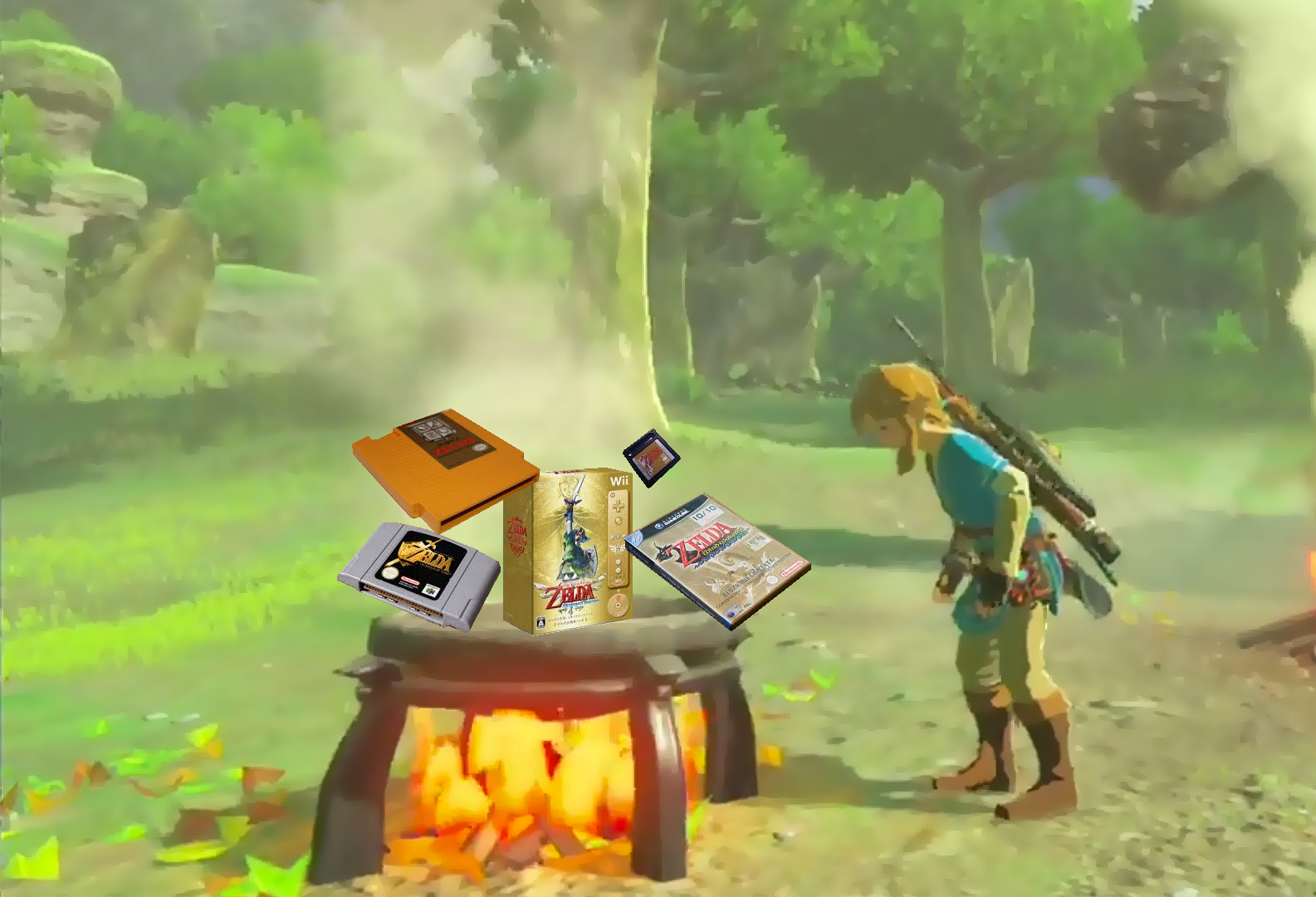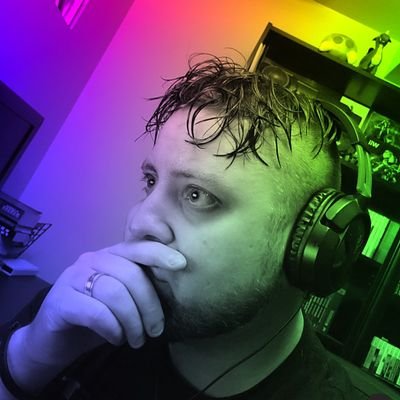Building The Ultimate Zelda Game Using The Best Parts of Previous Zelda Games
Posted on May 09 2017 by Andy Spiteri

If you live in Canada like I do, chances are you probably watch a lot of hockey. The other day, while I was sitting down on my couch getting ready to watch the Flames play, TSN ran a pre-show segment with some of their analysts building the ‘perfect hockey player’. By this, they meant that they were gonna take the best aspects of certain players and put them together to form a ‘super player’.
The hands of Sidney Crosby. The intelligence of Connor McDavid. The skating of Erik Karlsson. By the end, TSN had built themselves a bonafide hockey machine. As I was sitting on my couch, I turned to look towards my giant video game memorabilia collection, and as it often does, my mind wandered to The Legend of Zelda series.
Intrigued, I began thinking about what aspects I would take from all the games to make a ‘Super Zelda’ if you will. Each game has it’s own distinct strengths and… while I wouldn’t go so far as to say weaknesses for a lot of them, areas that weren’t emphasized. Some games are more consistent, some have higher peaks and lower valleys, and some games perfectly nail a certain aspect.
Putting on my Dr. Frankenstein coat, I’m going go attempt to build us a super game.
Before I begin, one thing to note is one area I won’t be covering is music. While obviously this whole list is going to be subjective based on my assessment on each games strengths, music in the series is so wildly subjective that I won’t even attempt to single out one game as being the best (also, because if you asked me, I don’t know that I could pick one).
 To begin, I’m going to start with the game that most of us probably take for granted. The first step in building the ultimate Zelda game is to use the foundation from the original Legend of Zelda. The sense of exploration, the different items, the dungeons, the setting… none of this would have existed without Zelda 1 laying the groundwork for all of it, so it seems appropriate to start there and go.
To begin, I’m going to start with the game that most of us probably take for granted. The first step in building the ultimate Zelda game is to use the foundation from the original Legend of Zelda. The sense of exploration, the different items, the dungeons, the setting… none of this would have existed without Zelda 1 laying the groundwork for all of it, so it seems appropriate to start there and go.
Another aspect that Zelda fans might take for granted is the excellent controls of Ocarina of Time. While we’ll be keeping the additions to Ocarina’s control scheme that Breath of the Wild made, again, Ocarina of Time laid out the foundation for how action-adventure game should control with its innovative lock-on features, context sensitive button maps, fixed but flexible camera controls and more.
 While previous world’s may pull more nostalgic heart strings, I don’t think that you’ll find anyone who will argue that the open world version of Hyrule found in Breath of the Wild has been the best overworld and the best setting used in a Zelda game, so that’s the one we’ll be using to construct our ultimate game.
While previous world’s may pull more nostalgic heart strings, I don’t think that you’ll find anyone who will argue that the open world version of Hyrule found in Breath of the Wild has been the best overworld and the best setting used in a Zelda game, so that’s the one we’ll be using to construct our ultimate game.
While we’re talking about Breath of the Wild, this game represents the aesthetic for the series we want. Striking a fine balance between the graphical styling of Twilight Princess’ realism, The Wind Waker’s playfulness, and Ocarina of Time’s whimsy, the style is able to do everything and I hope is the standard going forward.
 This may be a controversial pick, since as far as I can tell, aside from music, this may be the most subjective category on this list, but I’m gonna stick my neck out and say that for dungeon design and overall enjoyment, we’re gonna go with Ocarina of Time. There are many other games in the series that if someone made a case for them having the best dungeons, I probably wouldn’t argue, but the way that each dungeon from Ocarina was themed, to the structure, to the enemies, and the variation… for my money, Ocarina of Time still stands out as the best.
This may be a controversial pick, since as far as I can tell, aside from music, this may be the most subjective category on this list, but I’m gonna stick my neck out and say that for dungeon design and overall enjoyment, we’re gonna go with Ocarina of Time. There are many other games in the series that if someone made a case for them having the best dungeons, I probably wouldn’t argue, but the way that each dungeon from Ocarina was themed, to the structure, to the enemies, and the variation… for my money, Ocarina of Time still stands out as the best.
What it cannot claim to be the best at, though, is boss fights. For that, there can be no better game than Twilight Princess. From the quirky Blizzeta fight to the roller coaster like Stallord fight, all the way to Zants bat sh*t crazy brawl and the epic four part showdown with Ganondorf, Twilight Princess gave each boss fight a unique touch and took the series to new heights in terms of battles that I would say it hasn’t been too since.
 Moving on to story elements, Skyward Sword stands out at the best in terms of narrative, pacing, cinematography, and overall plot effectiveness. Look, I know people like to shit on Skyward Sword for its linearity or motion controls, and that’s fine, but the way this game told it’s story, with the awesome fight between Ghirahim and Impa, Zelda’s going to sleep scene, Fi’s farewell, etc was, in terms of storytelling, masterful. Laying out our story, we’re going to want to use Skyward Sword as our blueprint.
Moving on to story elements, Skyward Sword stands out at the best in terms of narrative, pacing, cinematography, and overall plot effectiveness. Look, I know people like to shit on Skyward Sword for its linearity or motion controls, and that’s fine, but the way this game told it’s story, with the awesome fight between Ghirahim and Impa, Zelda’s going to sleep scene, Fi’s farewell, etc was, in terms of storytelling, masterful. Laying out our story, we’re going to want to use Skyward Sword as our blueprint.
Next we’re going to take the characterization found in The Wind Waker and use it to flesh out our characters. Say what you will about the art style, but the amount of fleshed out, memorable characters was astounding. Ganondorf in particular was given some much needed backstory and benefited as a villain because of it. Similarly, your supporting characters (the King and Zelda respectively) were given enough story to them to become more than just annoying sidekicks or people you had to save.
 When it comes to atmosphere and tonality, there might not be a better game, let alone Zelda game, than Majora’s Mask. The game was masterful at making you feel certain ways at certain times. The sense of dread from seeing the Moon, pride at watching Anju and Kafei reunite, joy at seeing Pamela and her father together, sorrow for Mikau as he died on the beach… the game had you wrapped around it’s finger, and being able to make our audience feel the feels through our atmosphere will be invaluable in building out ultimate Zelda game.
When it comes to atmosphere and tonality, there might not be a better game, let alone Zelda game, than Majora’s Mask. The game was masterful at making you feel certain ways at certain times. The sense of dread from seeing the Moon, pride at watching Anju and Kafei reunite, joy at seeing Pamela and her father together, sorrow for Mikau as he died on the beach… the game had you wrapped around it’s finger, and being able to make our audience feel the feels through our atmosphere will be invaluable in building out ultimate Zelda game.
The last thing that I would personally want if I were building one Zelda to rule them all would come from A Link to the Past. It seems right to me that our ultimate Zelda game should have the theme first introduced in the SNES classic and used so many times in games that followed: duality. The Light World and the Dark World. The Adult Timeline and the Child Timeline. Hyrule and the Twilight Realm. The Past and the Present. The Sky and the Ground. So many times over The Legend of Zelda has played with the theme of duality that it only seems right that if we’re have one ultimate Zelda, it be a theme here.
 So there you have it. To recap, we’ve got the foundations of The Legend of Zelda, the gameplay and dungeons of Ocarina of Time, the bosses of Twilight Princess, the aesthetic and world of Breath of the Wild, the atmosphere of Majora’s Mask, the narrative and cinematography of Skyward Sword, the characterization of The Wind Waker, and the theme of duality from A Link to the Past. Sounds like a pretty alright game to me.
So there you have it. To recap, we’ve got the foundations of The Legend of Zelda, the gameplay and dungeons of Ocarina of Time, the bosses of Twilight Princess, the aesthetic and world of Breath of the Wild, the atmosphere of Majora’s Mask, the narrative and cinematography of Skyward Sword, the characterization of The Wind Waker, and the theme of duality from A Link to the Past. Sounds like a pretty alright game to me.
Of course, I’m just one Zelda fan among many, so I hope you guys are inspired to pick apart your favorite aspects of all the different Zelda games to put together your own ultimate Zelda adventure. I’m interested to see what some of you guys come up with, so take my Frankenstein coat, and let’s see what your own ultimate Zelda games looks like!
Andy Spiteri is a Senior Editor and Podcast co-host for Zelda Informer. If you like a healthy dose of Zelda and shenanigans, check out his gaming blog and follow him on Twitter.

Andy Spiteri is a Manager of Zelda Dungeon, Host of The Zelda Cast podcast, and Owner of Omega Metroid. Probably drinking a Tim Horton’s Double Double as you read this.
Business: andy.spiteri@zeldadungeon.net



